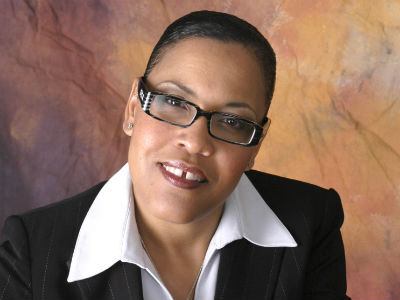Kennedy hearing deepens crisis over dismantling of CDC leadership - health scholar explains why the agency’s ability to protect public health is compromised
News > Health News

Audio By Carbonatix
4:06 AM on Friday, September 5
By Jordan Miller
(The Conversation is an independent and nonprofit source of news, analysis and commentary from academic experts.)
Jordan Miller, Arizona State University
(THE CONVERSATION) The Centers for Disease Control and Prevention, long considered the nation’s – if not the world’s – premier public health organization, is mired in a crisis that not only threatens Americans’ health but also its very survival as a leading public health institution.
The degree of this crisis was on full display during Health and Human Services Secretary Robert F. Kennedy Jr.’s Sept. 4, 2025, testimony before the U.S. Senate.
In the hearing, Kennedy openly criticized CDC professionals’ response to the COVID-19 pandemic, saying “the people at CDC who oversaw that process, who put masks on our children, who closed our schools, are the people who will be leaving.”
Kennedy’s hearing came on the heels of a contentious week in which Kennedy fired the CDC’s director, Susan Monarez, spurring 12 members of the Senate Finance Committee – including 11 Democrats and independent Bernie Sanders – to call on Kennedy to resign from his position.
At least four top CDC leaders resigned following Monarez’s ouster, citing pressure from Kennedy to depart from recommendations based on sound scientific evidence.
I am a teaching professor and public health professional. Like many of my colleagues, the disruption happening at the CDC in recent months has left me scrambling to find alternate credible sources of health information and feeling deeply concerned for the future of public health.
The CDC’s unraveling
These leadership shakeups come on the heels of months of targeted actions aimed at unraveling the CDC’s structure, function and leadership as it has existed for decades.
The turmoil began almost as soon as President Donald Trump took office in January 2025, when his administration enacted sweeping cuts to the CDC’s workforce that health experts broadly agree jeopardized its ability to respond to emerging health threats.
Trump used executive orders to limit CDC employees’ communication with the public and other external agencies, like the World Health Organization.
Within weeks, he ordered as much as 10% of the overall workforce to be cut.
Soon after, Kennedy – who was newly appointed by Trump – began undoing long-standing CDC institutions, like the Advisory Committee on Immunization Practices, replacing all 17 of its members in a move that was widely denounced by health experts.
Critics pointed to a lack of qualifications for the new committee members, with more than half never having published research on vaccinations and many having predetermined hostility toward vaccines.
In June, more than 20 authoritative organizations, including the National Medical Association and American Academy of Pediatrics, expressed serious concerns for the health impacts of overhauling the advisory committee.
How Monarez’s removal spurred the crisis
Public health leaders had cheered the July confirmation of Monarez as the CDC’s new director, seeing her nomination as a welcome relief to those who value evidence-based practice in public health. Monarez is an accomplished scientist and career public servant.
Many viewed her as a potential voice of scientific wisdom amid untrained officials appointed by Trump, who has a track record of policies that undermine public health and science.
In her role as acting director, to which she was appointed in January, Monarez had quietly presided over the wave of cuts to the CDC workforce and other moves that drastically reshaped the agency and weakened the country’s capacity to steward the nation’s health.
Yet Monarez had “red lines” that she would not cross: She would not fire CDC leadership, and she would not endorse vaccine policies that ran contrary to scientifically supported recommendations.
According to Monarez, Kennedy asked her to do both in an Aug. 27 meeting. When she refused, he asked her to resign.
Her lawyers pushed back, arguing that only the president had the authority to remove her, stating: “When CDC Director Susan Monarez refused to rubber-stamp unscientific, reckless directives and fire dedicated health experts, she chose protecting the public over serving a political agenda. For that, she has been targeted.”
Ultimately, the White House made her dismissal official later that evening.
An agency in turmoil
Further exemplifying and deepening the crisis at the agency, on Aug. 8, a gunman who had expressed anger over COVID-19 vaccinations opened fire on CDC headquarters, killing a police officer.
Many health workers attributed this directly to misinformation spread by Kennedy. The shooting amplified tensions and made tangible the sense of threat under which the CDC has been operating over the tumultuous months since Trump’s second term began. One employee stated that “the CDC is crumbling.”
Public health experts, including former CDC directors, are sounding the alarm, speaking out about the precariousness of the agency’s position. Some are questioning whether the CDC can even survive.
A crisis of trust
Even before the most recent shock waves, Americans said they were losing trust and confidence in CDC guidance: In April, 44% of U.S. adults polled said that they will place less trust in CDC recommendations under the new leadership. This would undoubtedly undermine the U.S. response if the country faces another public health challenge requiring a rapid, coordinated response, like COVID-19.
In addition to installing new members on the vaccine advisory committee, Kennedy abruptly changed the recommendations for flu and COVID-19 vaccines without input from the CDC or the vaccine advisory committee, and contrary to data presented by CDC scientists.
Public health professionals and advocates are now warning the public that vaccine recommendations coming from the CDC’s Advisory Committee on Immunization Practices may not be trustworthy. They point to the lack of credibility in the review process for the new committee, the fact that members have made statements contrary to scientific evidence in the past, and failure to apply an evidence-to-recommendations framework as compromising factors. Critics of the committee even describe a lack of basic understanding of the science behind vaccines.
Health impacts are being felt in real time, with health care providers reporting confusion among parents as a result of the conflicting vaccine recommendations. Now, those who want to be vaccinated are facing barriers to access, with major retailers placing new limits on vaccine access in the face of federal pressure. This as vaccination rates were already declining, largely due to misinformation.
The end result is an environment in which the credibility of the CDC is in question because people are unsure whether recommendations made in the CDC’s name are coming from the science and scientists or from the politicians who are in charge.
Filling the gaps
Reputable organizations are working to fill the void created by the CDC’s precariousness and the fact that recommendations are now being made based on political will, rather than scientific evidence.
The American Academy of Pediatrics and the American College of Gynecology have both released recommended vaccination schedules that, for the first time, diverge from CDC recommendations.
And medical organizations are discussing strategies that include giving more weight to their recommendations than the CDC’s and creating pathways for clinicians to obtain vaccines directly from manufacturers. These measures would create workarounds to compensate for CDC leadership voids.
Some states, including California, Oregon, Washington and New Mexico, are establishing their own guidance regarding vaccinations. Public health scientists and physicians are attempting to preserve data and surveillance systems that the Trump administration has been removing. But independent organizations may not be able to sustain this work without federal funding.
What’s at stake
As part of its crucial work in every facet of public health, the CDC oversees larger-scale operations, both nationally and globally, that cannot simply be handed off to states or individual organizations. Some public health responses – such as to infectious diseases and foodborne illnesses – must be coordinated at the national level in order to be effective, since health risks are shared across state borders.
In a health information space that is awash with misinformation, having accurate, reliable health statistics and evidence-based guidelines is essential for public health educators like me to know what information to share and how to design effective health programs. Doctors and other clinicians rely on disease tracking to know how best to approach treating patients presenting with infections. The COVID-19 pandemic made clear the importance of laboratory science, a unified emergency response and rapid distribution of effective vaccines to the public.
One of the strengths of the American system of governance is its ability to approach challenges – including public health – in a coordinated way, having a federal level of cooperation that unifies state-level efforts.
The CDC has been the nation’s preeminent public health institution for more than eight decades as a result of its vast reach and unparalleled expertise. Right now, it’s all sitting at a precarious edge.
This article is republished from The Conversation under a Creative Commons license. Read the original article here: https://theconversation.com/kennedy-hearing-deepens-crisis-over-dismantling-of-cdc-leadership-health-scholar-explains-why-the-agencys-ability-to-protect-public-health-is-compromised-264273.







